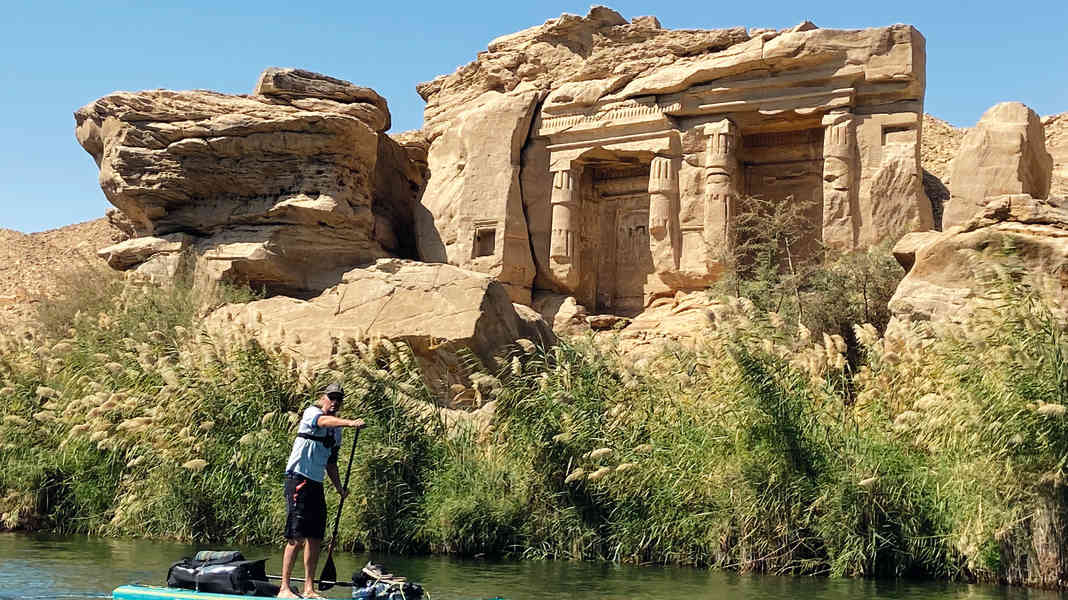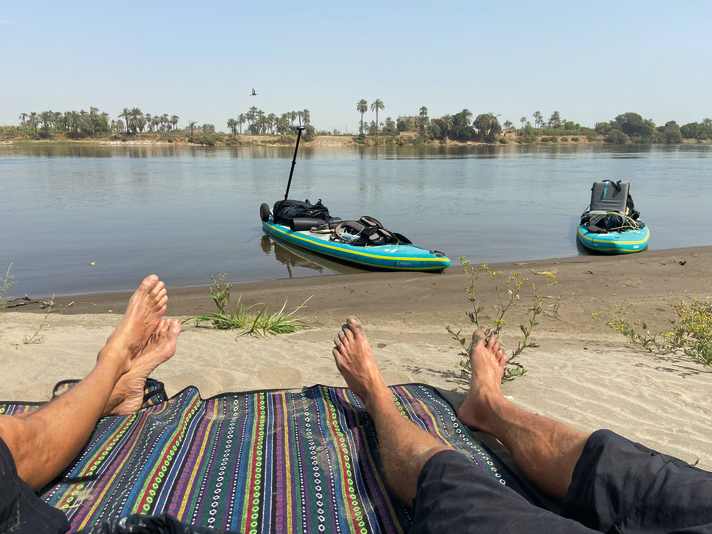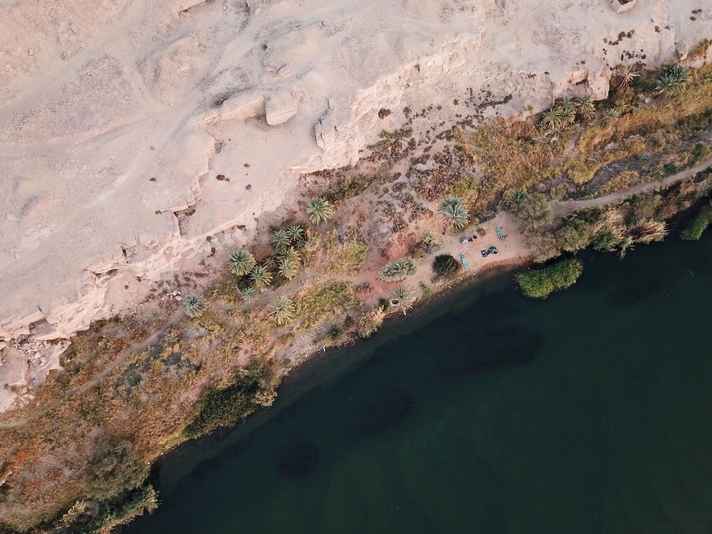"Barefoot across the Nile": Great documentary about SUP trip on the Nile now in the media centre
Andreas Erbe
· 15.09.2022

Tim Kruse, author, journalist and SUP adventurer, and Torsten Schulze, filmmaker and event organiser, have already completed some extraordinary SUP tours together. Among other things, they paddled the Way of St James in northern Spain on the water. Tim has also conquered the Rhine and the Danube on a SUP board. At the end of February, Torsten and Tim set off on their biggest adventure yet. In four weeks, they wanted to paddle 1200 kilometres down the Nile through Egypt to the estuary delta in the Mediterranean. They were accompanied by a film crew who produced a documentary about the journey for the series "Reisehelden" on SWR.
In an interview with SUP-Mag, Torsten talks about his paddle trip on the Nile
How did you come up with the idea of paddling down the Nile?
Schulze: Tim has always been fascinated by the river and he thought it would certainly be a unique experience to paddle virtually through the cradle of mankind and past the pharaohs' tombs along the banks of the Nile. He was able to get the film production company "Streetsfilm" interested in the project.
Did you want to convey a certain message with the trip?
Not originally. But when I saw that rubbish was being disposed of in the Nile, but that people were also washing themselves in it and even drinking from the river, I decided to support the NGO Very Nile - who pay fishermen to collect plastic waste from the Nile. The pollution means they can no longer do their actual job. The rubbish is then processed into bags, hats and purses in a factory in Cairo. I met with the people from Very Nile in Cairo.

What were the biggest problems during preparation?
It was primarily the production company that had the problems. The preparations took almost six months in total. One employee flew to Cairo ten days before the trip and spent up to eight hours a day at the authorities to get the licences. Egypt has a military government and so you have to hope for authorisation from the commander in each region. We were also warned against travelling because armed clans are in charge in some regions.
What were the biggest challenges on the tour?
As we were now travelling with official permission, the secret service and the military knew everywhere and we were constantly accompanied by boats. Our handwritten permit stated that we were only allowed to stay in appropriate accommodation and only visit places that seemed appropriate for Western visitors. On one day, we were not allowed to spend the night in a town of 400,000 inhabitants because there was supposedly no suitable accommodation for us there. We were then shuttled back to the starting point of the stage in a team car and had to spend the night there. We had to abandon our plan to spend the night in a tent on the shore. That only worked for a few nights, and then the poor soldiers had to spend the night in the open with their Kalashnikovs and keep an eye on us. In the Nile Delta, we then rented boats or spent the night on Nile cruise ships. We were always accompanied by armed soldiers, some of whom were still children. They were all incredibly nice and we laughed a lot with them, even though we couldn't understand each other.

Military surveillance and Egyptologists
What impressed you most on the tour?
Two things: firstly, the incredible friendliness of the people. Everyone was interested in you, we were always invited for tea from the shore, there was nothing artificial, it was just great. The second thing was experiencing Egyptian culture up close. Our interpreter was also an Egyptologist - we just called him Professor - and he was able to explain the 4000-year-old buildings to us with incredible enthusiasm. It was simply fascinating to experience this.
Were there any bizarre incidents?
Once we managed to escape our military guards and walk into a town. A man took us to a supermarket on his tricycle and kept shouting, 'Look, I've got Europeans with me'. In the end, we were surrounded by 80 children and were marvelled at like aliens.
Would you do the trip again?
Not in that form. I am a freedom-loving person and had hoped to sleep on the shore at night and look up at the sky. That wasn't possible with the military surveillance. And I can't recommend paddling on a river that is partly full of rubbish and has dead animals floating in it. But I will certainly come back to Egypt with my family and visit the cultural monuments with them.
The trailer for the film:
For less adventurous paddlers, however, there are also fully guided and comfortable tours in the most beautiful part of the Nile. Information is available from Kathrin Borgwardt from the Darß kite school.

